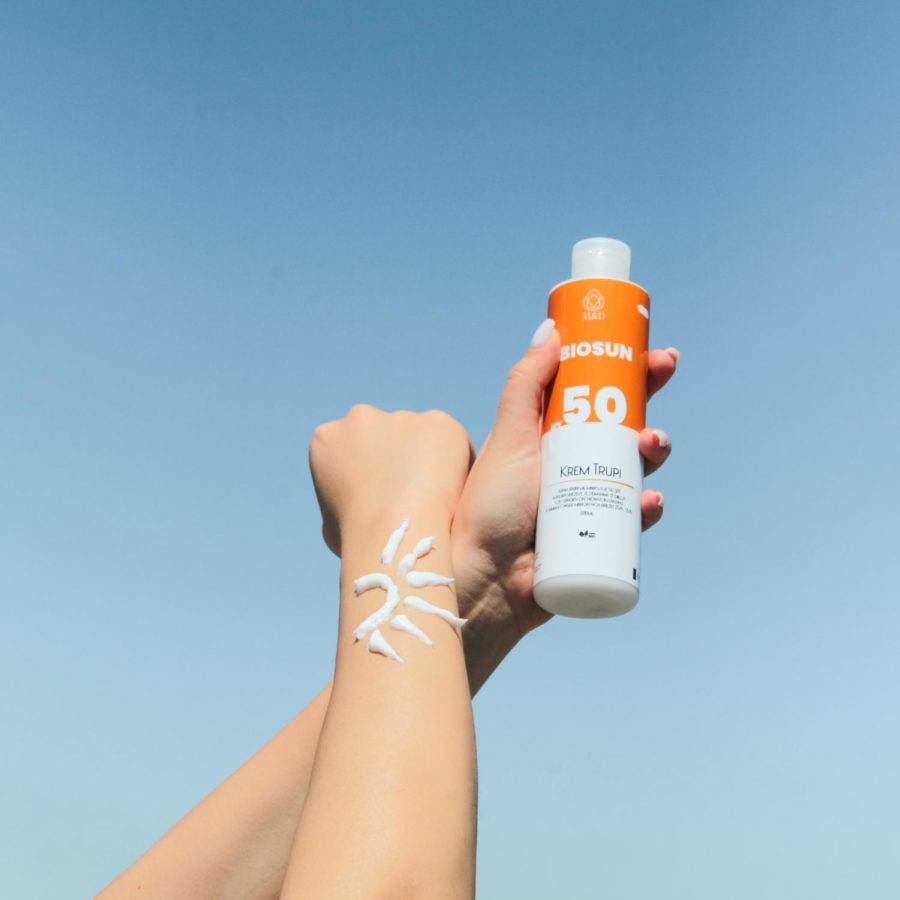Sunscreen: Love the Skin You’re In!
Picture this: it’s 90 degrees out, and you are hot and sweating. You are just about to jump in the pool when your mom tells you to put on sunscreen. Already aggravated by the heat, you ignore your mom and head outside. You and your skin are going to regret that later. . . Of course, we always hear from parents and adults to “reapply your sunscreen” or “don’t forget the sunscreen!” but do you really know how damaging the sun’s UV light is? The surprising thing is, that the temperature outside actually has no correlation with the UV radiation of the sun. The wavelength determines how strong the UV light will beat on your skin. It differs between 280 and 400. The shorter the wavelength is, the more harmful it is to your skin, and vice versa. Therefore, it doesn’t matter if it is January or August, wear your sunscreen!
Although you may not develop a sunburn – or even be able to see the sun that much – the UV light could be at its strongest point mid-winter. Furthermore, you can also start to age early, also called premature aging. This means that you can start to get wrinkles at a young age, and you can develop scarring and very dry skin. If that doesn’t bother you at all, you can also develop skin cancer, which as you know, could be very dangerous. Now, if you are like me and you don’t like to feel a sticky residue on your face all day, I have researched options that are perfect for you:
- Neutrogena Ultra Sheer Dry-Touch Sunscreen SPF 55
- La Roche-Posay Anthelios Clear Skin Sunscreen SPF 60
- Vichy Capital Soleil SPF 60
- Palmer’s Eventone Suncare Cocoa Butter Moisturizing Sunscreen Lotion SPF 30
- Hawaiian Tropic Sheer Touch Lotion Sunscreen 50 SPF, Oil Free, Water Resistant. (lasts up to 80 minutes and is reef friendly.)
Here are some commonly missed facts about sunscreen: There are 2 different types of sunscreen: physical and chemical. Physical sunscreen reflects sun rays off the skin, whereas chemical sunscreen only absorbs and scatters sun rays. Additionally, for daily use, professionals recommend an SPF of 30. However, if you were going in the ocean, which has some of the most intense sun rays, then you should use an SPF of at least 50. You also need to apply more sunscreen every 2 hours, and when you are in the pool, even more frequently. In addition, many experts recommend that you should buy a new bottle of sunscreen every year, because believe it or not, sunscreen does expire. One of the most commonly missed places is the hairline. Many people will get burned on the hairline when they are not wearing a hat. Your lips are also a very important place to keep protected, by wearing the right lip balm.
Overall, this summer remember to protect your skin, because it will certainly benefit you in the future!



















